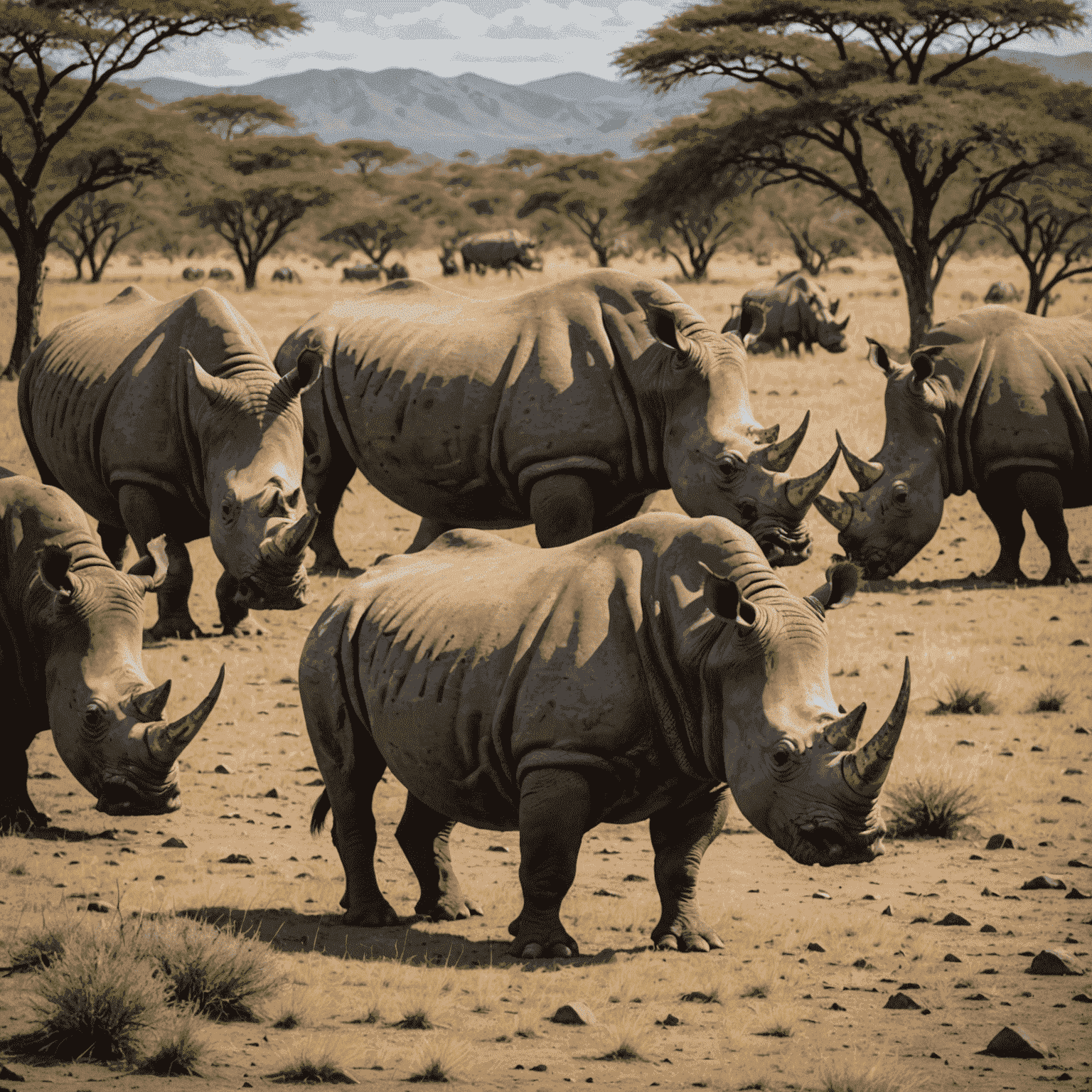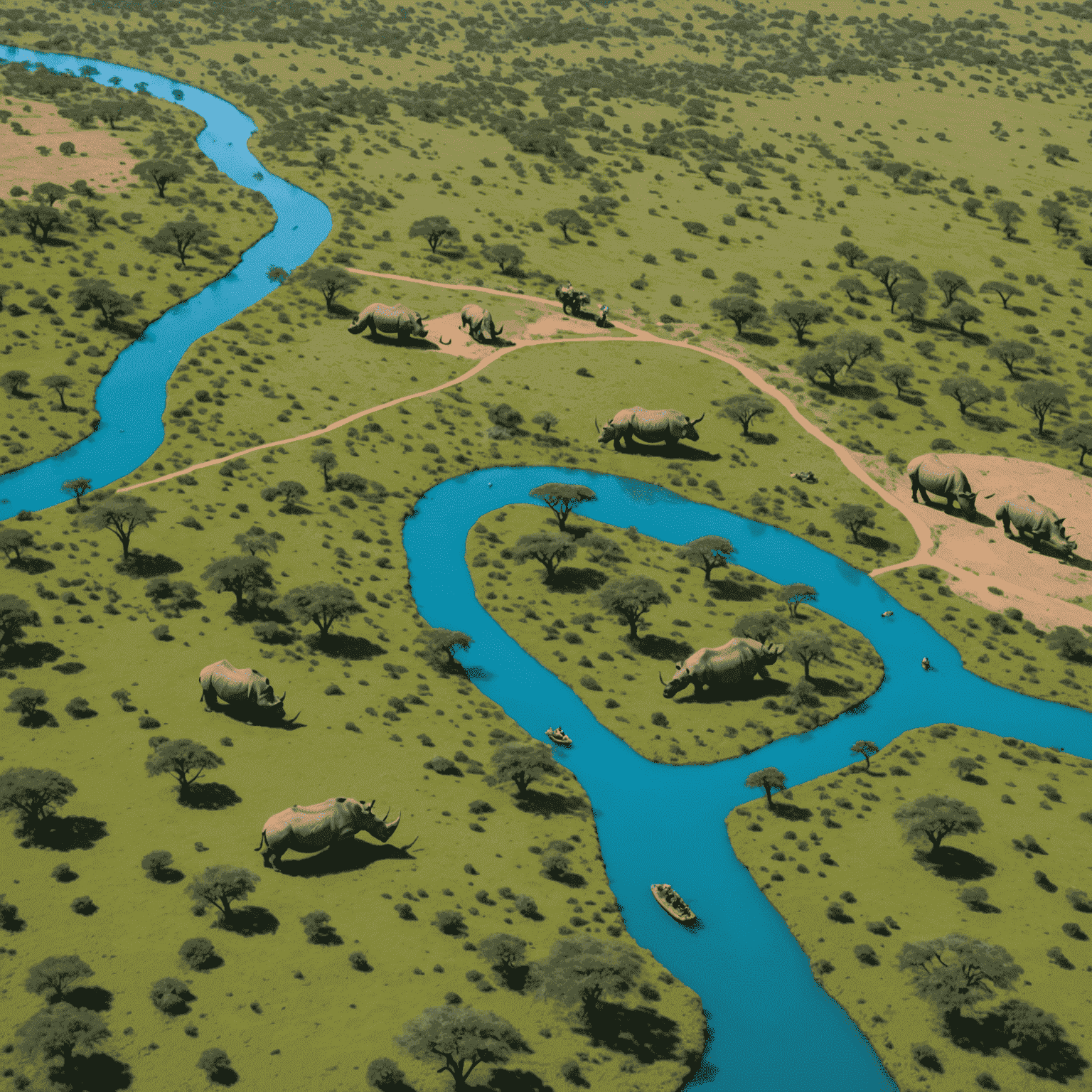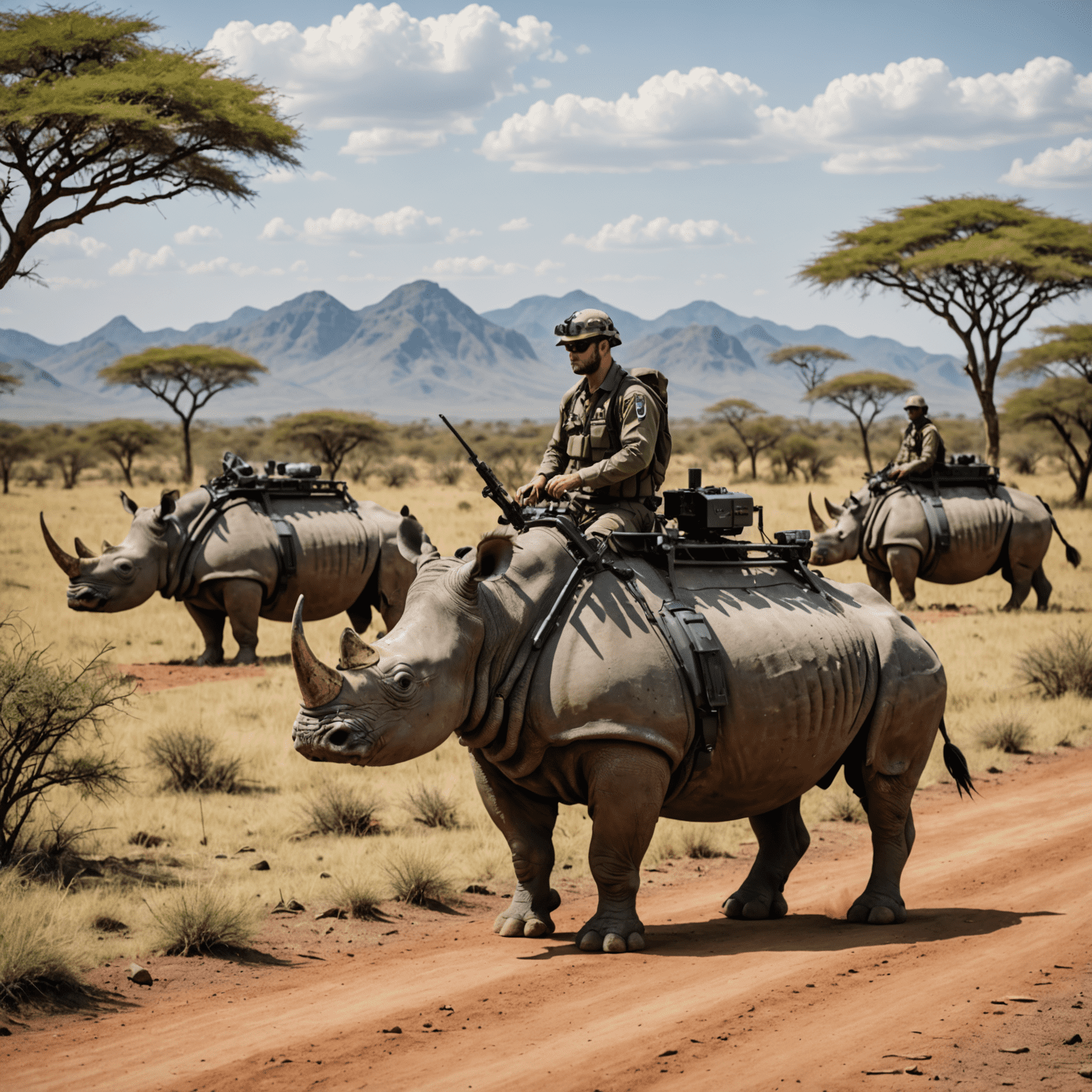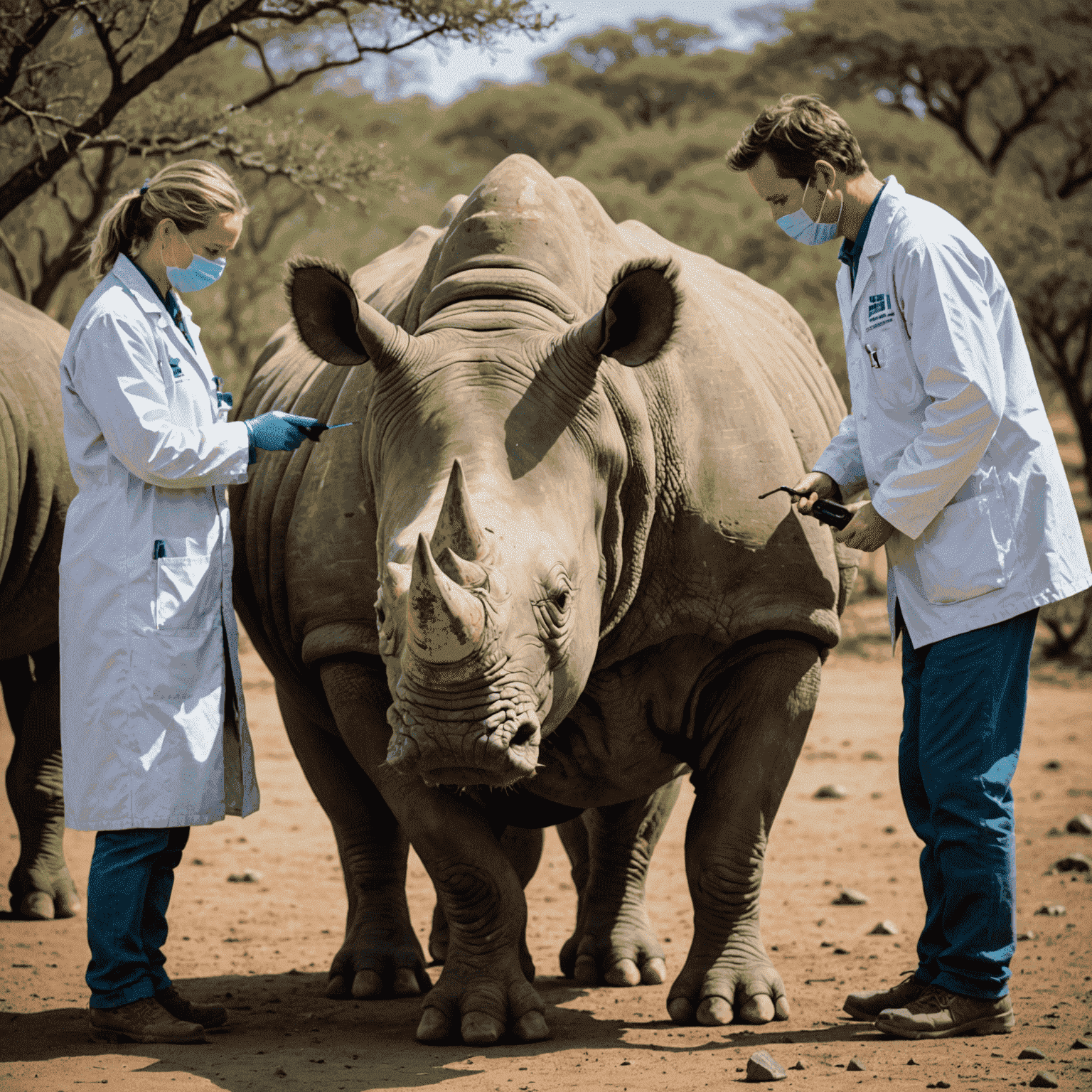Rhino Research Programs

Rhino Behavior Study
Our ongoing research focuses on understanding the complex social structures and behaviors of rhinos in their natural habitats. By observing their daily routines, mating rituals, and interactions with other species, we aim to develop more effective conservation strategies.

Habitat Mapping Initiative
We're conducting comprehensive mapping of rhino habitats to identify crucial areas for protection. This research involves using advanced GPS technology and drone surveys to create detailed maps of vegetation patterns, water sources, and terrain types preferred by different rhino species.

Anti-Poaching Technology Development
Our research team is at the forefront of developing cutting-edge anti-poaching technologies. We're testing advanced thermal imaging cameras, silent drone patrols, and AI-powered tracking systems to enhance the protection of rhinos against illegal hunting activities.

Health Monitoring Program
We've initiated a comprehensive health monitoring program for rhino populations. Using non-invasive techniques such as thermal imaging and fecal sample analysis, we're tracking the overall health of rhinos, identifying potential diseases early, and developing targeted conservation interventions.
Impact of Our Research
Our ongoing research programs are crucial for the long-term survival of rhino species. By deepening our understanding of rhino behavior, habitat requirements, and health needs, we're able to develop more effective and targeted conservation strategies. This knowledge directly informs policy decisions, aids in the design of protected areas, and enhances our ability to combat poaching threats.
Through our work, we're not only contributing to the preservation of these magnificent creatures but also to the broader ecosystem they inhabit. Rhinos play a vital role in maintaining the balance of their environments, and our research helps ensure that these ecosystems remain healthy and diverse for generations to come.